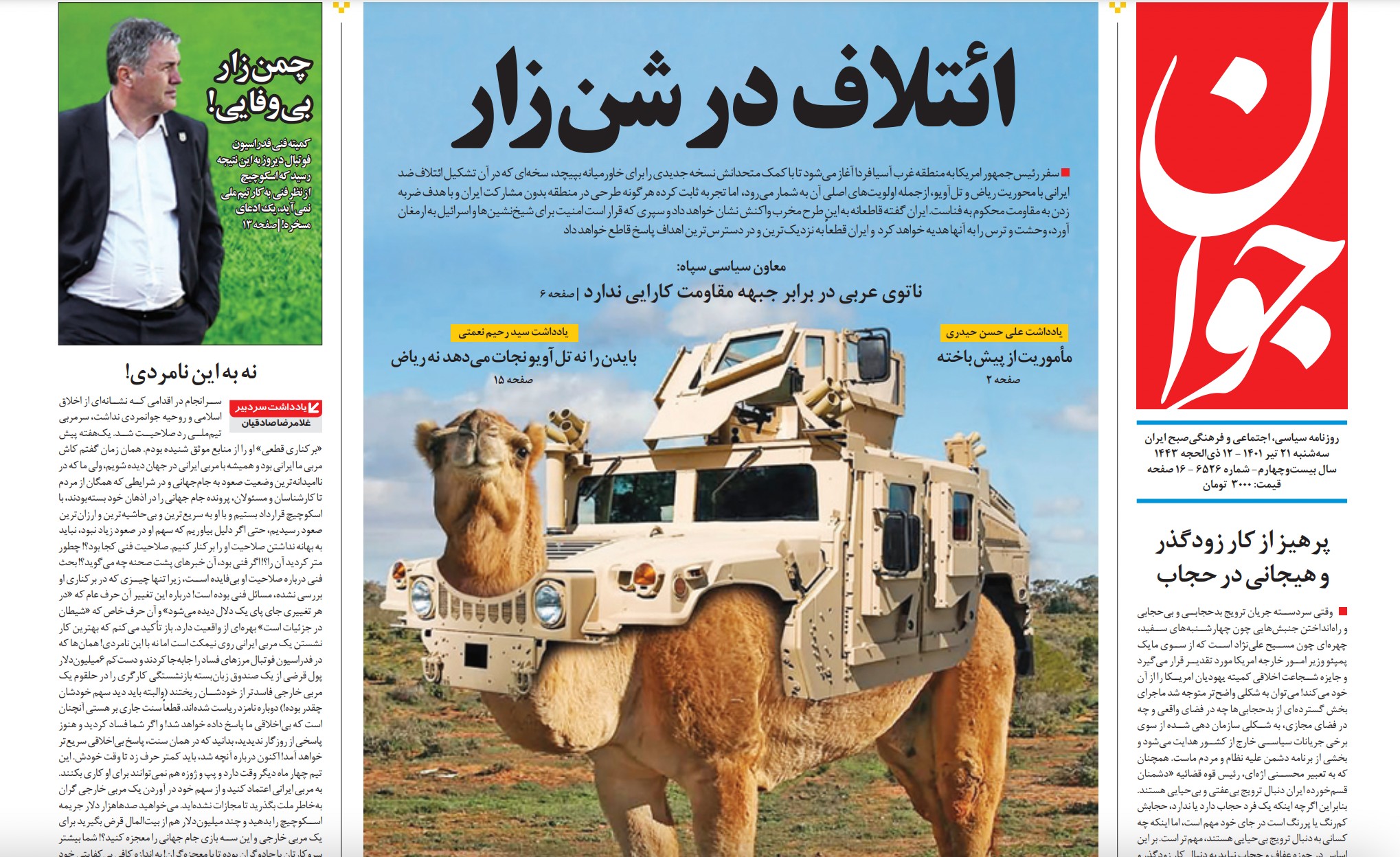Iranian press review: Paw patrol as police ban dogs from Tehran parks
Crackdown on four-legged friends
Conservative MPs and the Tehran police chief have introduced new laws and regulations criminalising keeping, breeding, and walking dogs in public spaces, local media has reported.
Last week, Tehran police chief Hossein Rahimi banned people from entering the capital’s parks with dogs, saying officers would confront anyone who fails to obey the new regulations.
"Some people enter parks with dogs … especially super big dogs that cause fear just to see them, so our priority is to deal with this," Rahimi was quoted as saying.
"We announce that entering city parks with all these [dogs] is illegal. According to us, doing this is a crime, a clear criminal act, with which we will deal according to law."
Stay informed with MEE's newsletters
Sign up to get the latest alerts, insights and analysis, starting with Turkey Unpacked
According to strict Islamic principles, dogs are considered "najis", meaning they ritually unclean. Since President Ebrahim Raisi took office in August 2021, authorities have begun implementing stricter interpretations of Islamic law.
As Tehran police cracked down on dog walking, conservative MPs have been drafting a new law demanding dogs must be registered and permission must be granted to own one.
According to the new law, which is aimed at "protecting the public's rights against dangerous animals", breeding dogs would also be criminalised.
Ultra-conservative cleric Mojtaba Zolnour said that MPs had several meetings with the police, the intelligence ministry, and the Islamic Revolutionary Guard Corps (IRGC) in order to draft the new law.
However, he did not provide information on which authority would be responsible for issuing the permit.
Concerns over 'Middle East Nato'
Top brass Iranian Republican Guard (IRGC) commanders, government officials, and media outlets affiliated with the IRGC have all reacted furiously to suggestions that a Middle Eastern military alliance akin to Nato could be formed between Arab countries and Israel.
Brigadier General Yadollah Javani, Intelligence Minister Esmaeil Khatib, and foreign ministry spokesperson Nasser Kanani blasted the alliance in separate interviews and statements, saying the coalition was doomed to fail.
Meanwhile, newspapers affiliated with the IRGC downplayed the formation of a US-led regional air defence alliance against Iran in an attempt to restore confidence among ordinary Iranians who support the authorities.
On Tuesday, the IRGC-owned Javan newspaper published a cartoon on the front page displaying a wheel-less US military Humvee on the back of a camel.
Under the headline "a coalition in the sand" the paper wrote that Iran would attack "the closest and most accessible targets in response to the plan".
Jam-e Jam, another IRGC-affiliated newspaper, criticised Arab states for contemplating a military coalition with Israel in a piece headlined: "Impotent Arabic Nato".
The daily claimed that the idea of a Middle East Nato was Israeli psychological warfare aimed at overshadowing talks to revive the 2015 nuclear deal.
"Past experiences can perfectly confirm that the Arabic-Hebrew coalitions would fail," the paper concluded, referring to the civil wars in Yemen and Syria.
New wave of arrests
Authorities have increased the pressure on dissidents and activists across the country by targeting politicians and relatives of protestors killed during the 2019 demonstrations.
On Monday, Nahid Shirpisheh, Sekineh Ahmadi, Rahimeh Yousefzadeh, Mahboubeh Ramezani, Iran Allahyari and Zeinab Mohammadi – all mothers of protesters - were arrested in different cities. Since 2019, they have organised a campaign seeking justice for their children.
The IRGC-affiliated Fars News published the details of their arrest. It accused them of "receiving money from a foreign agent to create chaos and insecurity in the country".
Then on Friday, security forces arrested prominent reformist politician Mostafa Tajzadeh in his Tehran home.
Iran's judiciary has yet to announce what Tajzadeh is accused of. However, conservative media outlets have accused him of "acting against national security", "spreading lies", and "disturbing public opinion".
Tajzadeh served as a deputy interior minister in former President Mohammed Khatami's administration. During the 2009 uprisings, he was arrested and imprisoned for seven years on charges of "propaganda against the system" and "acting against national security".
Pro-reform dailies have called for Tajzadeh's immediate release.
In an opinion piece for the Etemad newspaper, Azar Mansouri, the secretary general of the Union of Islamic Iran People Party, wrote that Tajzadeh's arrest would "only make Iran's enemies happy".
"If your concerns are about Iran's national security and interests, you would better know people like Tajzadeh are opportunities and not a threat. The critiques and suggestions they offer aim to improve the governance," he wrote.
Last week, three Iranian directors were also arrested after publishing a statement about the country's mismanagement.
More restrictions on Afghan refugees
Afghan refugees are now subject to even more restrictions after authorities in Tehran imposed a temporary ban on them accessing the banking system and introduced a new registration system.
Local media reported the ban on access to banks would be lifted after a week for "foreign nationals", a term the officials use to refer to Afghan refugees.
Interior ministry officials said that the ban occurred due to technical failures. However, other sources said the ministry had applied new restrictions to Afghan refugees in order to force them to register as well as facilitate the deportation of undocumented refugees.
According to UN refugee agency data, about 3.8 million Afghan refugees live in Iran, with over 2.5 of them undocumented. However, Iranian authorities say the total number of Afghan refugees much higher, at about 4.5 million.
Middle East Eye delivers independent and unrivalled coverage and analysis of the Middle East, North Africa and beyond. To learn more about republishing this content and the associated fees, please fill out this form. More about MEE can be found here.





